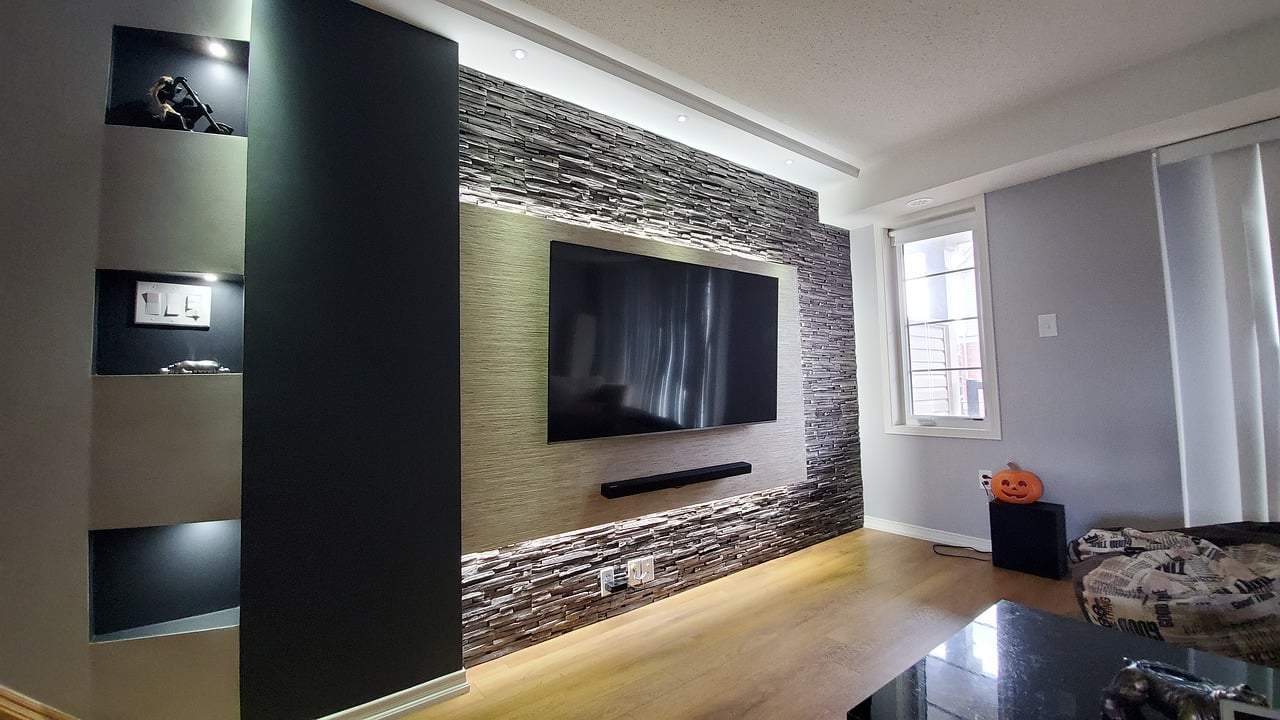In recent years, there has been a noticeable increase in the number of home-based daycare centers. With this trend comes a unique insurance need and requirement for those running a daycare out of their residence. As a homeowner or potential home buyer, you should know how a home-based daycare business could impact your existing home insurance policy.
Home-based daycare and home insurance
Home-based daycares have revolutionized childcare services, offering parents a more personalized and home-like setting for their children. However, this approach to childcare also introduces unique considerations, particularly when it comes to home insurance. The shift from standard homeowner activities to running a daycare out of one’s residence brings about a range of risks that must be carefully addressed.
- Child injuries: While it’s natural for children to engage in play and exploration, accidents can happen. Home-based daycare providers must be prepared to handle injuries that might occur on their premises. Whether it’s a scraped knee or a minor fall, the responsibility for the children’s safety lies with the provider, presenting a new liability realm.
- Play equipment hazards: Daycare environments often feature play equipment and toys to engage children. However, these elements can also pose risks if not properly maintained or supervised. Accidents related to play equipment, such as swings, slides, or climbing structures, can result in injuries, leading to potential insurance claims.
- Property damage: Children’s exuberance and curiosity can occasionally lead to unintended property damage. Home-based daycare providers may find their personal belongings or home furnishings accidentally damaged during playtime. This includes furniture, electronics, and even flooring, which may require repair or replacement.
- Legal liabilities: One of the most significant concerns is the possibility of legal action. Unhappy parents might hold the daycare provider responsible for mishaps or perceived negligence that harm their child. These situations can escalate into lawsuits that demand financial compensation, legal fees, and other expenses, which can strain a provider’s resources.
The decision to run a home-based daycare demands a keen awareness of these distinct risks and an effective mitigation strategy.
Coverage options for home-based daycare providers
While homeowner’s insurance policies have long provided a safety net for residential properties, they often fall short when adequately covering the risks of running a daycare out of one’s home. So, the best option is specialized insurance plans designed exclusively for home-based daycare providers.
Comprehensive protection
Exploring specialized insurance plans can unlock a range of benefits that are tailored to the multifaceted nature of home-based daycare operations:
- Liability coverage: Given the potential for accidents, injuries, and legal claims, daycare-specific insurance policies often provide robust liability coverage. This extends beyond standard homeowner’s insurance limitations to encompass incidents directly related to childcare activities. In case of a liability claim arising from a child’s injury, these policies can offer financial protection for medical expenses, legal fees, settlements, or judgments.
- Property coverage: While homeowner’s insurance might cover personal belongings, daycare-specific insurance considers the equipment, toys, and supplies essential to the daycare’s operations. This coverage can safeguard against property damage, theft, or destruction of daycare-related items, ensuring that the tools of your trade are safeguarded.
- Business interruption coverage: Recognizing the potential impact of disruptions on income, specialized plans can include business interruption coverage. This provision helps compensate for lost income in the event of unforeseen circumstances that force a temporary closure, such as property damage.
- Licensing and regulatory compliance: Some specialized plans even offer coverage to assist with regulatory requirements and licensing issues that may arise while running a daycare business. This can include legal expenses related to compliance and licensure.
Opting for specialized insurance plans tailored to home-based daycare providers, you proactively mitigate the unique risks of operating in this environment.
Additional safety measures for home-based daycares
When operating a home-based daycare, safety isn’t just a priority; it’s a cornerstone. Taking rigorous safety measures can also positively impact insurance considerations, potentially lowering premiums while fostering a secure and nurturing environment.
Childproofing for comprehensive safety
Childproofing your home goes beyond simply putting away sharp objects or locking cabinets. It involves creating an environment that mitigates potential hazards, reducing the likelihood of accidents. Think of childproofing as a holistic approach to safety:
- Secure furnishings and fixtures: Heavy furniture, shelves, and appliances should be securely anchored to prevent tipping. This precaution ensures that children can explore their surroundings without inadvertently causing instability.
- Electrical outlets and cords: Covering and securing electrical outlets helps prevent accidental shocks or tripping hazards. Hide cords when possible to prevent tugging and entanglement.
- Choking hazards: Be vigilant about small objects that could be choking hazards. Regularly inspect play areas to ensure no small items are within reach of curious hands and mouths.
- Window and door safety: Install window guards or locks to prevent falls, and ensure that doors leading outside are equipped with childproof locks to prevent unauthorized exits.
Regular safety inspections
A routine safety inspection schedule is essential to maintaining a secure environment for the children. This practice not only identifies potential hazards but also demonstrates your commitment to proactive safety measures:
- Daily walkthroughs: Start each day with a thorough walkthrough of the daycare space. This ensures that potential hazards, such as loose cords or misplaced objects, are identified and rectified before the children arrive.
- Weekly deep checks: Conduct weekly inspections that encompass not only the play areas but also the entire premises. This includes the kitchen, bathroom, outdoor play spaces, and emergency exits.
- Documentation: Maintain a log of your safety inspections, noting any hazards found and the actions taken to address them. This documentation showcases your dedication to maintaining a safe environment, which can be valuable in insurance discussions.
Emergency response protocols
Preparation for emergencies is integral. Having well-defined protocols in place can significantly reduce the impact of unforeseen situations and instill confidence in parents:
- Fire and evacuation plans: Establish clear evacuation routes and conduct regular fire drills with the children. Make sure fire extinguishers and smoke detectors are in working order.
- First aid and medical needs: Maintain a well-stocked first aid kit and ensure you’re trained in basic first aid. Be aware of any medical conditions or allergies among the children and have a plan in place to address them.
- Communication: Maintain an up-to-date contact list for parents and emergency contacts. Ensure parents are informed of accidents, injuries, or incidents promptly and transparently.
Finding the right home-based daycare insurance
Running a home-based daycare is a fulfilling endeavor that provides a vital service to parents and caregivers. However, ensuring that your daycare business is protected with the right insurance coverage involves several key steps:
Research home insurance providers
Before securing suitable insurance for your home-based daycare, research insurance providers specializing in this type of coverage. Not all insurance companies offer policies tailored to daycare facilities, so you’ll want to identify those with experience in this niche.
- Online research: Conduct online research to identify insurance providers offering home-based daycares coverage. Look for reputable insurance companies with positive reviews and a track record of serving daycare businesses.
- Ask for recommendations: Reach out to fellow daycare providers or childcare professionals in your network. They can provide valuable insights into their insurance experiences and recommend providers they trust.
- Check licensing requirements: In many jurisdictions, daycare providers are required to have specific insurance coverage as part of their licensing. Check with your local licensing agency to understand the insurance requirements in your area.
Compare Quotes
Once you’ve identified potential insurance providers, the next step is to gather quotes and compare them to determine which policy best fits your needs and budget.
- Request quotes: Contact the insurance providers on your list and request quotes for daycare insurance. Be prepared to provide detailed information about your daycare business, including the number of children you care for, the types of activities you offer, and any additional services you provide.
- Review coverage options: Carefully review the coverage options offered by each provider. Pay attention to key elements such as liability coverage, property coverage (for your home and daycare equipment), and coverage for accidents or injuries that may occur on your premises.
- Compare premiums: While it’s essential to find comprehensive coverage, you’ll also need to consider the cost. Compare the premiums quoted by different providers and assess whether they fit within your budget.
Assess Coverage Needs
Determining the right insurance coverage for your home-based daycare requires a thorough assessment of your specific needs and potential risks.
- Liability coverage: Liability insurance is one of the most critical components of daycare insurance. It protects you in case of accidents or injuries that occur on your property. Consider the maximum coverage limits and whether they adequately protect your assets.
- Property coverage: Ensure that your insurance policy covers not only the physical structure of your home but also the daycare equipment, toys, and supplies. In the event of damage or theft, you’ll want to replace these items without a significant financial burden.
- Additional coverages: Depending on your daycare’s unique circumstances, you may need additional coverages such as professional liability insurance, auto insurance for transporting children, or coverage for business interruption.
- Future growth: Consider the potential growth of your daycare business. Will your insurance policy accommodate an increase in the number of children you care for or any expansion of services you offer?
Your journey as a home-based daycare provider is a testament to the evolving dynamics of childcare. It’s a narrative of nurturing, education, and safety intertwined with the complexities of insurance. As you continue to create an enriching environment for the children in your care, remember that every safety measure and every insurance decision is a brushstroke on the canvas of their future.




